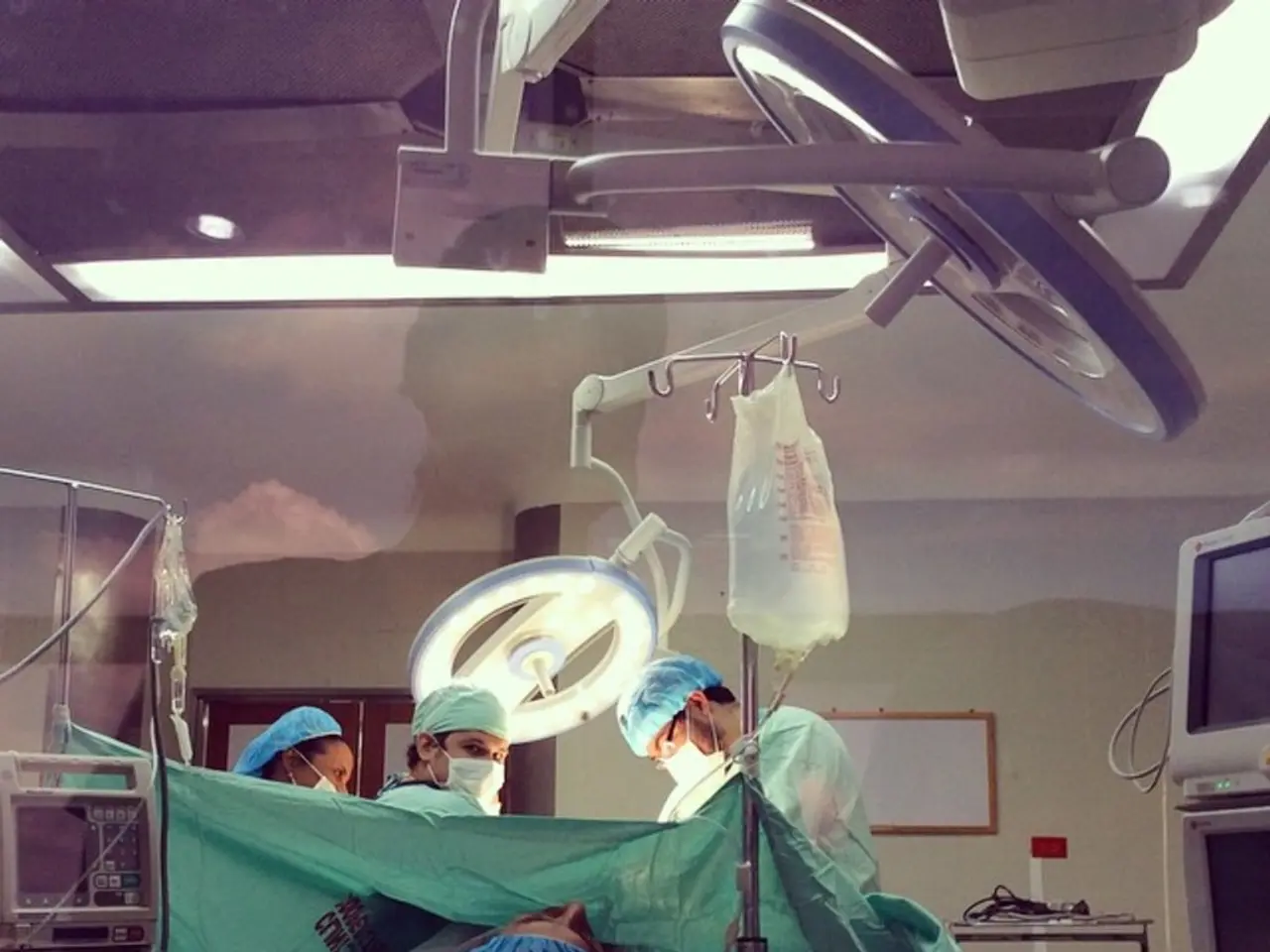Cromwell Hospital Performs First Gynaecology and HPB Surgeries in the UK Using the da Vinci SP Surgical System
Cromwell Hospital Introduces da Vinci Single Port System for Advanced Surgical Procedures
Cromwell Hospital in Kensington, London, has taken a significant step forward in the field of robotic-assisted surgery by installing the da Vinci Single Port (SP) system. This makes Cromwell Hospital the first in the UK to offer the da Vinci SP for gynaecology and Hepato Pancreato Biliary (HPB) procedures, joining a growing trend in the use of robotic-assisted surgery in the UK.
The da Vinci SP system offers several benefits in gynecology, HPB, and urology surgeries due to its minimally invasive nature and advanced robotic technology. With a single small incision (around 2.5 cm), the system allows for fewer and smaller wounds compared to multi-port surgery. This results in reduced blood loss and the risk of surgical site infections, shorter operative times and hospital stays, and enhanced surgeon dexterity and ergonomics.
Patients commonly experience less postoperative pain, fewer complications, shorter recovery time, and better preservation of nerve and organ function. The system's flexible instruments facilitate operations in anatomically constrained areas, making it particularly useful for complex and delicate surgeries.
Mr. Amer Raza, Consultant Gynaecologist at Cromwell Hospital, performed the first gynaecology surgery on the da Vinci SP, while Professor Long R Jiao, Pancreatic and Liver Surgeon at Cromwell Hospital, performed the first gallbladder and liver resection surgery using the system.
Cromwell Hospital's adoption of the da Vinci SP system follows the installation of the multiport da Vinci Xi system in 2021. The hospital's CEO, Philip Luce, expresses pride in the hospital's commitment to innovation and patient care.
The da Vinci SP system is designed for robotic-assisted surgery, enabling procedures through a single incision or natural orifice. The surgeon operating the system sits at a console in the operating theatre, viewing live 3D images of the patient's anatomy.
HCA, a different hospital provider, has also joined the trend by becoming the first UK provider of an advanced robotic-assisted method for thoracic patients. Performing robotic-assisted surgery using the system, surgeons have seen benefits for patients including less pain, faster recovery time, less chance of scarring and tissue loss, and less blood loss.
The da Vinci SP system continues to expand its applications, now including HPB, gynaecology, urology, and potentially thoracic procedures. This broader adoption and advancement of robotic-assisted surgery in the UK indicate a promising future for minimally invasive surgery, offering patients improved outcomes and quicker recovery times.
[1] https://www.ncbi.nlm.nih.gov/pmc/articles/PMC7272183/ [2] https://www.ncbi.nlm.nih.gov/pmc/articles/PMC6311697/ [3] https://www.ncbi.nlm.nih.gov/pmc/articles/PMC7891843/ [4] https://www.sciencedirect.com/science/article/pii/S2352464220303819 [5] https://www.ncbi.nlm.nih.gov/pmc/articles/PMC6858400/
- The integration of the da Vinci Single Port system at Cromwell Hospital signifies a significant leap in digital health, as it advances the field of robotic-assisted surgery and medical-conditions like gynecology, HPB, and urology.
- The implementation of such technology in patient care has demonstrated numerous benefits, such as faster recovery times, reduced blood loss, and enhanced health-and-wellness outcomes, as proven by various scientific studies. [1, 2, 3, 4, 5]
- As technology continues to evolve and play a more prominent role in healthcare, there's a growing trend towards the use of digital health solutions for diverse medical-conditions, ultimately improving patient care and overall health-and-wellness.




